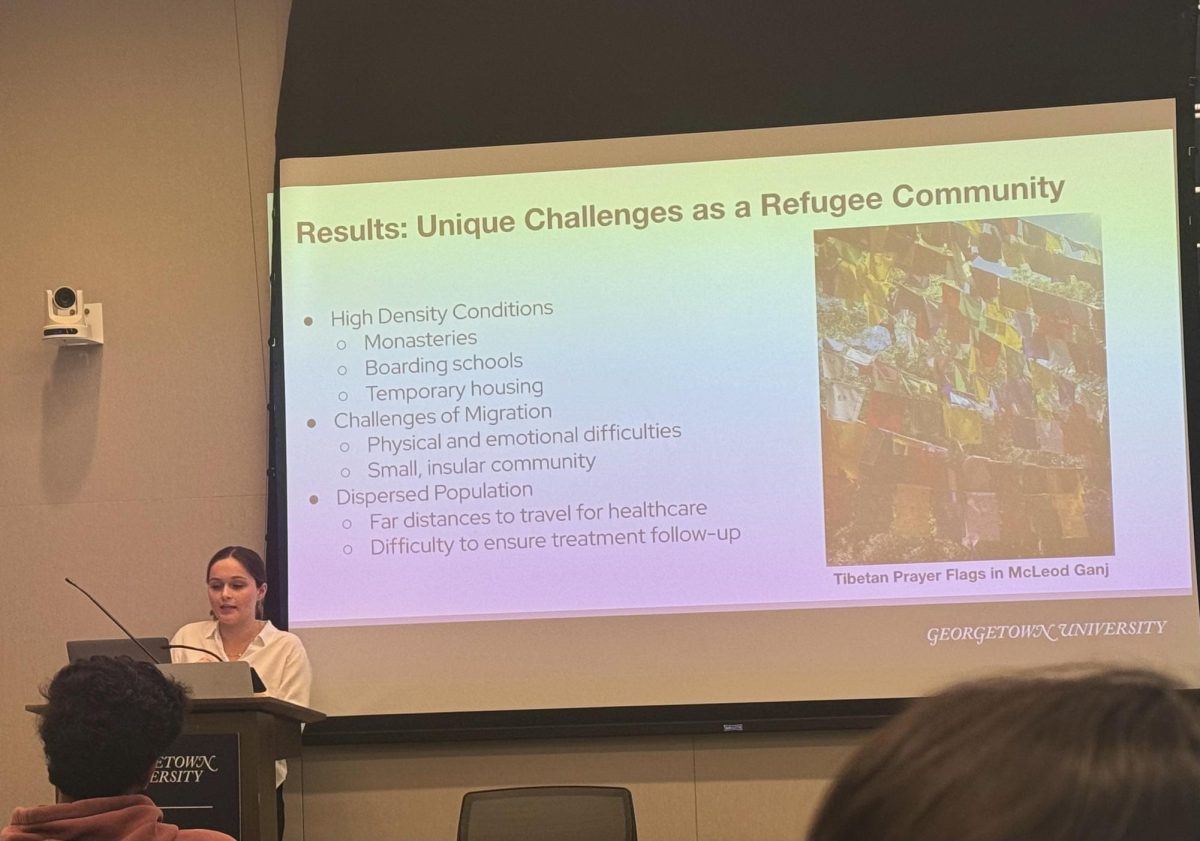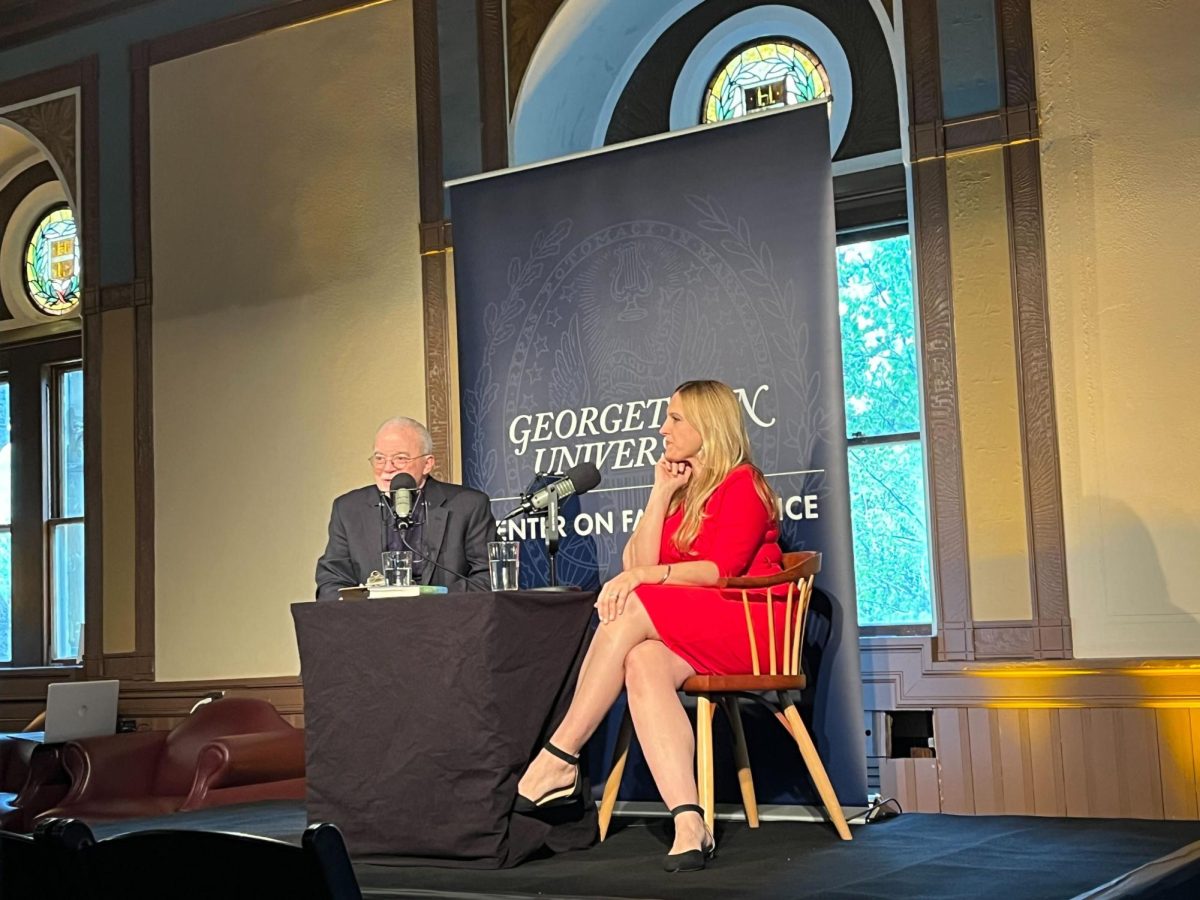After about three years of advocacy by the Disability Studies Minor Working Group, Georgetown is set to offer a new minor on disability studies this fall after it was approved by the Georgetown College Executive Council on Monday.
With the introduction of the minor, the university is set to join 42 higher-level institutions offering programs in this field in the United States and Canada.
Students interested in declaring the 18-credit minor will have to take three core courses: Introduction to Disability Studies and two approved elective courses. The electives will span a range of different departments, including English, Theology and Anthropology.
The university currently offers courses in the disability studies course cluster, which was formed by the Disability Studies Minor Working Group, an ad hoc faculty body formed in 2013. The cluster institutionalized relevant courses across different departments in the College and School of Nursing and Health Studies.
After the cluster was created, students were able to explore disability studies in more depth, but still could not receive accreditation. Associate professor of theology Julia Watts Belser, a member of the working group, said the minor would lead to a greater commitment to the field.
“We’re doing tremendous work for the disability studies cluster, but it was always a bit of a regret for me that the kind of intellectual work that happened there wasn’t recognized in students’ transcripts,” Belser said. “Having the minor makes it possible for students to make a more sustained, deeper commitment to disability studies as a field and then to come out of it with a credential that I think signals this kind of intellectual commitment.”
Georgetown College Dean Chester Gillis said students and faculty deserve academic programs that pertain to current social issues.
“Clearly this is an emerging field of study. Our students deserve a curriculum that reflects national trends. Many faculty members work in this area and now have a curricular outlet for their research and expertise,” Gillis wrote in an email to The Hoya.
Georgetown’s program has the potential to reinforce the university’s broader mission of nurturing the individual’s mind, body and spirit, according to Libbie Rifkin, professor of English and head of the working group.
“What I think Georgetown is poised to contribute to this array of existing programs is the relationship that the field of disability studies has to our mission,” Rifkin said. “The notion of educating the whole person and really thinking about what it means to educate the whole person and what are our notions of the healthy body, the normative mind, the worthwhile life — those are all questions that disabilities studies asks.”
Working group member and professor Sylvia Önder said the group is confident that interested students will also engage in some form of community-based learning, particularly due to their access to D.C. institutions.
“We would have a list of placements where students could work in organizations and do the work that is intimately connected to disability studies but we weren’t going to make it a requirement of the minor,” Önder said. “We expect that most of our students would want to do community-based learning, which seems to be a natural fit with the topic.”
Belser emphasized that the minor would encourage students to engage with deeper questions about disability, such as its significance across time and cultures and the broader notions of social power.
“If we recognize that cultures develop a certain sense of what constitutes normal, disability is really those human experiences that fall outside the boundaries of the norm,” Belser said. “So, in many ways I think disability studies is the critical interrogation of this notion of normalcy and deviance.”
The active support of the student body was crucial in getting the minor approved, according to the members of the working group. Last spring, the Georgetown University Student Association ran an online petition in support of approving the minor, which garnered 618 signatures.
Former GUSA Accessibility Policy Chair Danielle Zamalin (NHS ’18) said that GUSA recognized the need to become more involved in supporting academic initiatives related to disability studies.
“GUSA has always co-sponsored the Disability Studies Lecture Series, and been part of important accessibility discussions on campus and throughout the campus-plan, but we knew we could do more in terms of student engagement on the academic side,” Zamalin wrote in an email to The Hoya.
The recognition of the field is important in light of the need to advance intellectual engagement with disability and promote greater tolerance than that displayed by current leaders, according to Zamalin.
“Our own president has mocked a disabled reporter. Let that register. The example of leadership that generations of young people will witness is a figure shrouded in ableism and simultaneously completely unlearned in Disability Studies,” Zamalin wrote.
“As an educational institution we are the country’s only resource to combat such prejudice and ignorance; we have the opportunity to teach. So the attainment of a minor, especially in this climate, is good. The fact that Georgetown students can train to make a difference in the larger world, that’s great.”




















